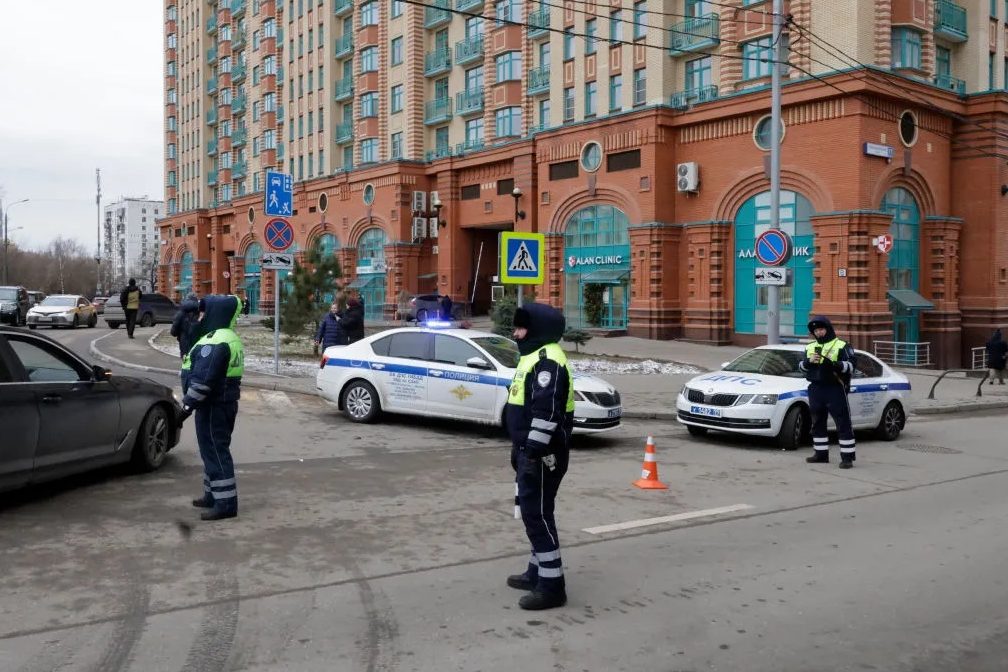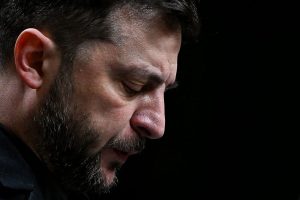The Alye Parusa (Scarlet Sails) apartment complex in Moscow’s north-western Shchukino suburb bills itself as an exclusive place to live, and a safe one, too, with cameras, gates and twenty-four-hour security. Neither this, nor his detail of bodyguards, saved Armen Sargsyan when, on Monday morning, a bomb with more than two pounds of explosives detonated as he was walking out the lobby. His leg was blown off, and although he was airlifted to hospital, he died shortly after.
So far, this appears to be the latest in a campaign of assassinations carried out by Ukrainian intelligence. Sargsyan was a rather different figure to the last target in Moscow, Lieutenant General Kirillov. Born in Armenia, Sargsyan later moved to Gorlivka, a grimy industrial occupied Ukrainian city (twinned, incidentally, with Barnsley) north of Donetsk. He was a criminal-businessman turned warlord, who had acquired the underworld nickname “Armen Gorlivsky” for the stranglehold he acquired over legal and illegal business there. In particular, though, he was likely on Kyiv’s hit list because of his role in setting up the so-called Arbat Separate Guards Special Purpose Battalion in 2022. One of many such smaller mercenary and militia forces fighting for the Russians in their war on Ukraine, this was never really a battalion, comprising only 200 to 300 men, a mix of Armenian, Ukrainian and Abkhazian mercenaries. Nonetheless, it fought on the Toretsk front and was then transferred to operations in the Kursk salient late last year.
His trajectory, from well-connected dodgy businessman to underworld opportunist and then mercenary entrepreneur in many ways paralleled that of Yevgeny Prigozhin, founder of the Wagner private army. He did well enough for himself: a four-room flat at Alye Parusa is currently on the market for 210 million rubles, or $2 million. However, the two men operated on very different scales. Sargsyan was essentially a small-time, bargain basement imitation at best who, unlike Prigozhin, never thought to challenge the Kremlin.
Nonetheless, his career does illuminate the changing opportunities and demands facing an ambitious opportunist in the Donbas. Before the 2014 Revolution of Dignity in Ukraine, he was the very model of a shady entrepreneur, protected by his close relationship with the Party of Regions, that dominated local politics and from which had sprung elected president Viktor Yanukovych. The consensus seems to be that he may well have paid a bribe here to expedite a permit, sent a bit of muscle to warn off a competitor there, but was, well, as legitimate as anyone else in that environment.
Then, as anti-government protesters clashed with police in Kyiv’s Maidan Square, Sargsyan was asked to recruit some likely lads to head to the capital and crack some heads. There’s no suggestion he was uncomfortable with the request, but in any case, he could hardly say no. At that point, Sargsyan — who does not seem to have had any real loyalties beyond expedience — was deemed to have taken sides and was later charged by the Ukrainian police. So, he was stuck in the rebel parts of the Donbas, which soon became de facto Russian controlled.
Sargsyan was again, hardly unwilling to take fullest advantage, extending his control over Gorlivka’s economy and using his position as head of the Donetsk Boxing Federation to recruit more thugs to his cause. Between 2014-22, after all, the self-proclaimed Donetsk People’s Republic essentially became a gangster pseudo-state, its economy kept afloat — other than by subsidies from Moscow — by organized criminality, from industrial-scale coal smuggling to producing counterfeit cigarettes. With the February 2022 invasion, though, the environment changed again. Raising a militia was not just a way of making money (the Russian defense ministry pays well) but also an act of performative loyalty that gives small-scale local warlords and biznismen like Sargsyan the license to continue their other criminal activities.
So Sargsyan’s real significance is precisely that he was so run of the mill. Despite inflated claims that he was a shadowy figure controlling the prisons of the Donbas or being groomed as a rival to the late, unlamented Prigozhin, he was nothing special, just another thuggish entrepreneur happy to be involved in any “business,” from the legitimate to the criminal, so long as it makes a return. There is still the chance that he was killed in a settling of scores, as Russia’s underworld becomes more unstable again. He was, after all, close to several controversial Chechen politicians and crime figures (the two are not mutually exclusive). However, if one accepts the current working assumption in Moscow, that this was a Ukrainian hit, then Sargsyan was presumably a target precisely because he was so representative of a whole stratum of Donbas opportunists who have moved into the warlord business. How many may now be reconsidering their life choices — or hiring more bodyguards?

























